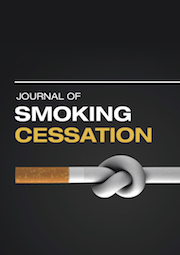Article contents
A Retrospective Review of Pilot Outcomes from an Out-patient Tobacco Treatment Programme Within Cardiology Services
Published online by Cambridge University Press: 24 January 2014
Abstract
Introduction: Due to the challenging nature of tobacco addiction, individuals with cardiac conditions often continue to smoke at high rates (up to 62%), even after experiencing life-threatening events.
Aims: This study examines pilot outcomes of a longitudinal Smoking Cessation Clinic (SCC) within cardiology services.
Methods: This study is based on a retrospective review of the charts of 117 participants of the SCC (between September 2010 and May 2012). The main outcome of interest is self-reported 7-day point-prevalence of smoking abstinence verified by expired CO level. A secondary outcome was smoking reduction, defined as consuming 50% (or lower) than the baseline number cigarettes in the past week.
Results: Thirty-five per cent of participants achieved smoking cessation, whereas 42.1% reduced their cigarette consumption. In multivariate regression analyses, salient predictors of smoking cessation included being male and a greater length of visiting the smoking cessation clinic.
Conclusions: Providing evidence-based approaches to tobacco treatment within cardiology services is feasible and well received by patients with cardiac and other co-morbidity. The modest outcomes from this pilot study support the need for tobacco treatment in hospital cardiology settings. Such interventions may aid in reducing the disproportionate burden of tobacco-related disease among smokers with medical co-morbidity.
- Type
- Articles
- Information
- Copyright
- Copyright © The Author(s), published by Cambridge University Press on behalf of Australian Academic Press Pty Ltd 2014
References
- 4
- Cited by


